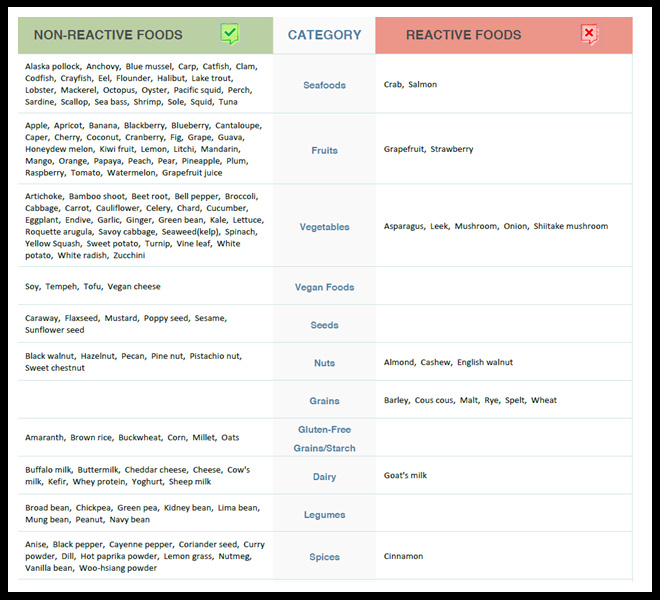
Knowing How Your Body Is Reacting to Foods Can Make a Huge Difference In Your Health!
Understanding the nuances between a food allergy, intolerance, and sensitivity is crucial for managing dietary discomfort and your overall health. While many grasp the severity of food allergies, which can trigger immediate and severe reactions, such as anaphylaxis, the distinctions between intolerance and sensitivity are a bit trickier. Let’s delve into these differences:
**Food Allergies:**
Food allergies prompt an immediate immune system response, typically mediated by Immunoglobulin E (IgE) antibodies. Diagnostic tests for allergies, including food allergies, often involve a skin prick test. The reaction can be swift and severe, sometimes leading to hospitalization. Common symptoms include swelling, hives, difficulty breathing, and serious digestive issues.
**Food Intolerances:**
Unlike allergies, intolerances generally do not result in life-threatening reactions. Instead, they manifest as discomfort or mild symptoms after consuming specific foods. This could include digestive issues like bloating, stomach ache, or headaches. Food intolerances arise from the body’s inability to digest certain components of food, often due to enzyme deficiencies. Lactose intolerance, for example, results from insufficient lactase enzyme to break down lactose in dairy products. 70% of the population do not have enough lactase enzyme to properly digest dairy products.
**Food Sensitivities:**
Food sensitivities involve an immune response to specific foods, leading to chronic inflammation and various symptoms over time. Unlike allergies, sensitivities may not produce immediate or obvious symptoms. Food sensitivities are very sneaky. You might notice more inflammation in your body or fatigue a day or two after consuming the problem food. Over time, they can contribute to long-term health issues. A big factor in developing food sensitivities is Leaky Gut Syndrome.

A Primer On Leaky Gut and How it Can Lead to Food Sensitivities!
Leaky gut occurs when the intestinal barrier (a one cell thick wall) becomes compromised, allowing undigested food particles and toxins to enter the bloodstream. Factors contributing to this condition include gluten, antibiotics, poor diet, pesticides, and stress. Once in the bloodstream, these particles can trigger immune responses, leading to more sensitivities and inflammation. If you have been diagnosed with an autoimmune disease, the bad news is you,most likely, have leaky gut. And if you want to heal from your autoimmune disease, you must address LEAKY GUT!
A critical step for addressing this is to undergo a food sensitity blood test. (of course it is not covered by insurance) Recently, I underwent a food sensitivity blood test, revealing reactions to foods like avocado, almonds, and salmon, among others. Surprisingly, some trigger foods were staples in my diet, while others were items I hadn’t consumed for years. Understanding these sensitivities can be pivotal in managing dietary habits and overall health. Here are my results.

You Don’t Have to Suffer for Years with Gut Issues Silently!
Addressing gut issues in this manner can be both costly and time-consuming. However, if you’ve been grappling with guesswork and random attempts without success, a more scientific approach might be worth considering.
Navigating complex chronic conditions requires a team of professionals. As a health educator and certified coach, I’d love to be part of that team for you. Feel free to reach out to me. Click on the video below to see all how I am navigating the latest challenges. I walk the walk, not just talk the talk!



